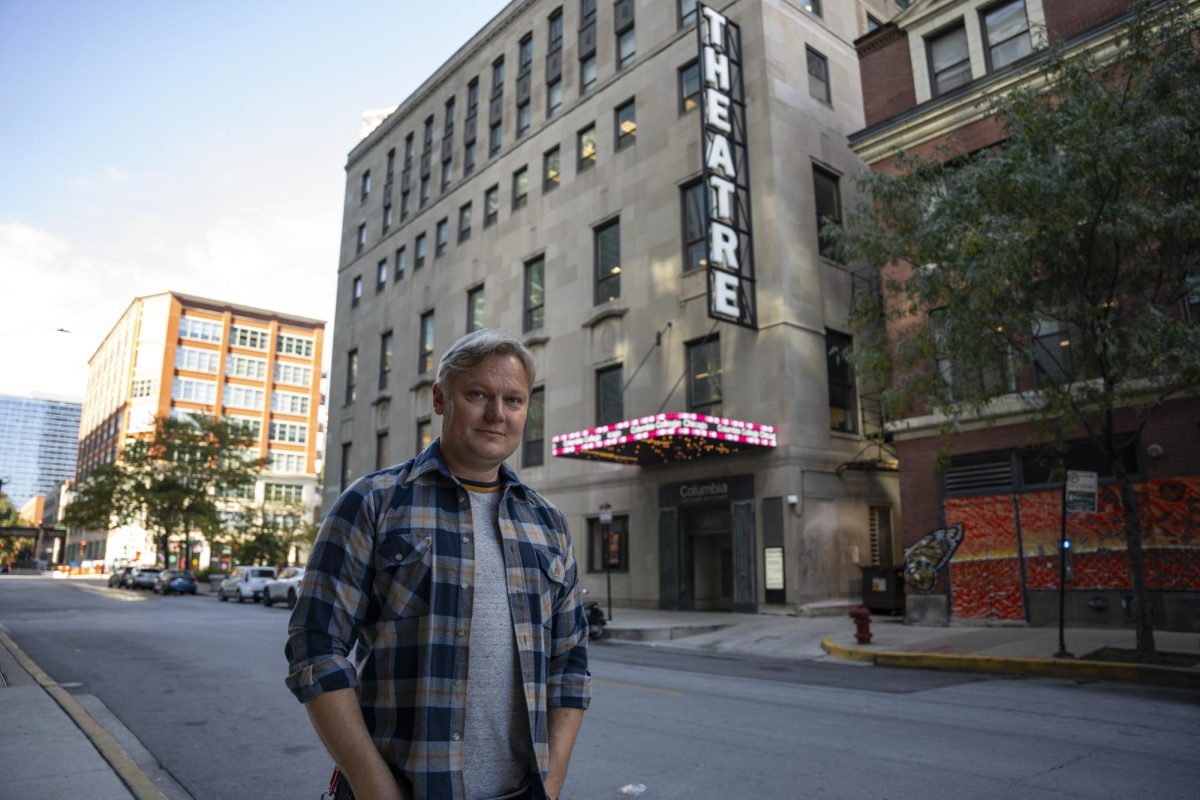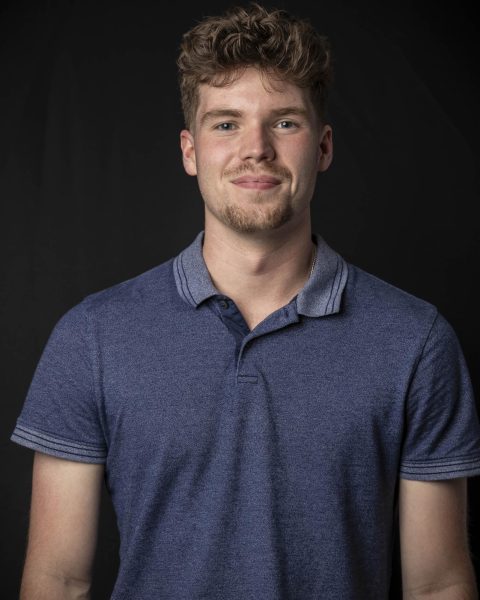For the play “Turret” at the Red Orchid Theatre, scenic designer Grant Sabin was tasked to challenge himself outside the familiar edges of a boxed theater stage and design a curved, metal underground bunker with a human-sized hamster wheel set in the Pacific Northwest.
His work on the play’s set won him a Joseph Jefferson award, or “Jeff” Award, for “Scenic Design – Midsize.”
“It’s funny though, even though we’re in a military bunker, there are still some elements like a wingback chair, area rugs and even a kitchen sink, that bring some welcoming elements of home to this otherwise industrial sterile space,” Sabin said.
He was one of the several Columbia faculty, former faculty and alumni who were recognized for their theater work in Chicago. The winners included Columbia alum and current Columbia theatre tech designer and teacher Grant Sabin, former part-time faculty member Mike Tutaj and Columbia alum Jeffrey Levin.
The Joseph Jefferson Awards, more widely known as the Jeff Awards, is an annual awards ceremony centered around recognizing excellence in theater work in and around the Chicago area; this year’s event was in Oak Brook in suburban Chicago on Sept. 30. Award nomination categories include everything from acting, directing, tech design and overall production.
While there were three winners associated with the college, over a dozen faculty and alumni were nominated for awards in various categories. Some Columbia nominees were nominated for multiple awards.
Columbia alum Jeffrey Levin, for example, was nominated for Original Music in a Play for “Turret” at A Red Orchid Theatre and Sound Design for three different productions: “Eurydice” at Writers Theatre, “Selling Kabul” at Northlight Theatre and “Turret” at A Red Orchid Theatre. Levin won a Jeff Award for his sound design in “Turret” in the category Sound Design – Midsize.
“Turret” is a play that follows the story of two men hunkered down in a post-apocalyptic, metal bunker, hiding from a mysterious entity outside.
Levin described the bunker or “turret” as a “character onto itself” with a myriad of aspects he needed to audibly design, including “a furnace, a treadmill, alarms and security systems, big vault doors, a periscope, communication systems, unseen locks and gears, and other mysterious functions.”
Along with the turret, Levin had to sound design its “Terminal,” the computer that managed all the functions of the bunker.
“We basically had to invent something that looked and sounded like a convincing UI for a non-existent computer operating system,” he said, “It just took a lot of trial and error, fast problem solving, and tight collaboration to make it through all of these moments where Terminal was an active part of the play.”
While creating the audial atmosphere had its challenges, Levin also described the show as a ton of fun because it implemented themes he truly enjoyed. “To get to GO BIG in those genres and then win an award for having fun is extra nice.”
Jonathan Webster, a senior theatre design and technology major, described sound design as the “forgotten part of theatre,” he said, “with really good sound design, it’s not noticeable.”
After Levin won his award for sound design, Webster said, “It’s really cool to see that people from the school are doing the things that I want to do.”
Former part-time faculty member in the former Theatre department Mike Tutaj was nominated for his projection design for both Drury Lane Productions’ “Fiddler on the Roof” and Frame of Reference Productions’ “Gods and Monsters.” With two nominations, Tutaj was competing against himself in this category. His work in “Gods and Monsters” inevitably won him the Jeff Award in “Projection Design.”
“Gods and Monsters,” a play based on the 1998 movie and Christopher Bram’s book “Father of Frankenstein,” follows a film director in the last days of his life. While the story is mostly fictional, it revolves around real-life director James Whale, most famous for his films, “Frankenstein,” “The Invisible Man” and “Show Boat.”
“Fiddler on the Roof” is a musical about the story of a Jewish community in 1905 Russia. Tevye, a father and local milkman, dreams of a rich life to share with his wife, Golde, and their five daughters. The family deals with many hardships, especially from the 1905 Russian government, pushing them to leave their community of Anatevka.
In “Turret,” some of the challenges Sabin said he had to encounter had a lot to do with the many curved and circular structures that were part of the set.
“There are a lot of circular themes and moments within this text that drive the story forward,” he said, “Thinking within the parameters of a square box is much easier to accomplish.”
Despite the circular challenges, Sabin said through this production he learned to not “get stuck in that metaphorical box”, “dream in circles if the design calls for it and be thankful to have the opportunity of discovery through play.”
Sprig Velic, a sophomore theatre design and technology major with a scenic design focus, is currently taking the “Design/Tech Practicum” class with Sabin. They said they felt nervous and unsure when they originally started working in the scene shop, but Sabin was a kind and supportive mentor to them.
“Grant, when first meeting him, made me feel so welcomed and made it seem like I’ve been here longer than I have,” they said. “He’s an amazing professor.”
River Wise, a senior theatre design and technology major also focused on scenic design, described Sabin as having “a good balance of silliness and seriousness, “incredibly skilled” and “very willing and eager” to help students with design projects big and small. Wise said he was “not surprised” to learn Sabin won his award for “Turret.”
Both Wise and Velic said they saw the designs and mockups for “Turret” in its early stages, making Sabin’s win a full-circle moment for both of them as well.
“I am so so lucky to have him, not only as my professor, but as my tech director, as the head carpenter,” Wise said, “it’s just so amazing that we have someone like that working at the school and working directly with students.”
Copy edited by Angel Marie Guevara










